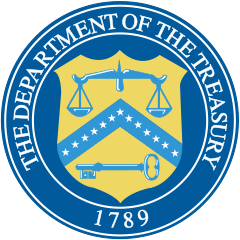On August 30, the U.S. Treasury sanctioned the Iranian oil tanker, the Adrian Darya-1, which it accused of transporting 2.1 million barrels of Iranian crude oil on behalf of the IRGC. The ship, formerly named the Grace 1, was detained by Britain off the coast of Gibraltar on July 4 for attempting to smuggle oil to Syria in violation of E.U. sanctions. Treasury also designated the ship’s captain, Akhilesh Kumar, for providing support to a terrorist organization. “Vessels like the Adrian Darya 1 enable the IRGC-QF to ship and transfer large volumes of oil, which they attempt to mask and sell illicitly to fund the regime’s malign activities and propagate terrorism,” said Sigal Mandelker, Under Secretary for Terrorism and Financial Intelligence. “Anyone providing support to the Adrian Darya 1 risks being sanctioned. The path to relief is to change course and not allow the IRGC-QF to profit from illicit oil sales.” The following are statements from Treasury and the State Department.
U.S. State Department Announcement
Today, the Department of the Treasury took action against the Adrian Darya 1, and designated its captain, Kumar Akhilesh for acting for or on behalf of the Islamic Revolutionary Guard Corps-Qods Force (IRGC-QF), a Specially Designated Global Terrorist (SDGT) Shipping Network under E.O. 13224. Since the vessel’s mid-August release from detention in Gibraltar, Kumar Akhilesh has assumed the role of captain. He is now a designated individual and will suffer significant negative consequences. Any who would consider supporting the IRGC should heed this warning.
With today’s action, the sanctioned individuals and entities will be denied access to the U.S. financial system and listed online as SDGTs. In addition, a freeze will be placed on any U.S. assets. Non-U.S. persons who knowingly provide significant goods, services, or support to the individuals and entities designated today may themselves face sanctions consequences.
The Iranian regime continues to foment regional conflicts, develop and proliferate ballistic missiles, hold foreign citizens hostage, brutalize its own people, and sponsor terrorism on an unprecedented scale. It is also expanding its uranium enrichment-related activities. The United States will continue to increase pressure on the Iranian regime until it changes its behavior.
U.S. Treasury Press Release
 The U.S. Department of the Treasury’s Office of Foreign Assets Control (OFAC) took action today against Adrian Darya 1, an oil tanker transporting 2.1 million barrels of Iranian crude oil ultimately benefitting Iran’s Islamic Revolutionary Guard Corps-Qods Force (IRGC-QF). The Adrian Darya 1 is being identified as blocked property pursuant to Executive Order (E.O.) 13224, which targets terrorists and those providing support to terrorism or acts of terrorism. As part of today’s action, the Adrian Darya 1’s captain, Akhilesh Kumar, is also designated pursuant to E.O. 13224.
The U.S. Department of the Treasury’s Office of Foreign Assets Control (OFAC) took action today against Adrian Darya 1, an oil tanker transporting 2.1 million barrels of Iranian crude oil ultimately benefitting Iran’s Islamic Revolutionary Guard Corps-Qods Force (IRGC-QF). The Adrian Darya 1 is being identified as blocked property pursuant to Executive Order (E.O.) 13224, which targets terrorists and those providing support to terrorism or acts of terrorism. As part of today’s action, the Adrian Darya 1’s captain, Akhilesh Kumar, is also designated pursuant to E.O. 13224.
“Vessels like the Adrian Darya 1 enable the IRGC-QF to ship and transfer large volumes of oil, which they attempt to mask and sell illicitly to fund the regime’s malign activities and propagate terrorism,” said Sigal Mandelker, Under Secretary for Terrorism and Financial Intelligence. “Anyone providing support to the Adrian Darya 1 risks being sanctioned. The path to relief is to change course and not allow the IRGC-QF to profit from illicit oil sales.”
The IRGC-QF’s highest-ranking officials have long overseen the export of Iranian oil, often masking its origin and sending it to the Syrian regime or IRGC-QF proxies across the region.
The IRGC-QF, designated pursuant to E.O. 13224 on October 25, 2007, is responsible for external operations and has provided material support to numerous terrorist groups, including the Taliban, Hizballah, HAMAS, and Palestinian Islamic Jihad, making it a key component of Iran’s destabilizing regional activities. The IRGC-QF’s parent organization, the IRGC, was designated pursuant to E.O. 13224 on October 13, 2017, and on April 15, 2019, was designated as a Foreign Terrorist Organization by the Secretary of State.
Sanctions Implications
As a result of today’s action, all property and interests in property of these targets that are in the United States or in the possession or control of U.S. persons must be blocked and reported to OFAC. OFAC’s regulations generally prohibit all dealings by U.S. persons or within the United States (including transactions transiting the United States) that involve any property or interests in property of blocked or designated persons.
In addition, persons that engage in certain transactions with the individuals and entities designated today may themselves be exposed to sanctions or subject to an enforcement action.
